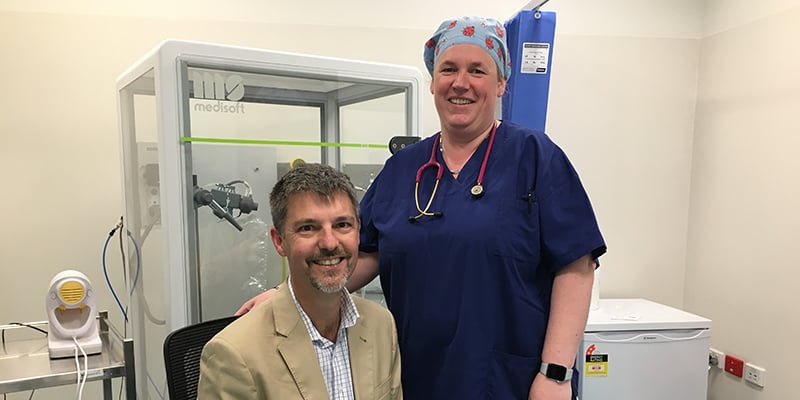Search
Showing results for "clinical trials"
The Opportunity To be involved with clinical trials that are a part of the Childhood Allergy and Immunology Research (CAIR) Group, run out of the

News & Events
Asthma medication reduces respiratory complications during tonsil surgeryA Perth study has shown that over-the-counter asthma medication before surgery can reduce respiratory complications during and after tonsillectomy surgery.
Research
BCG vaccination to reduce the impact of COVID-19 in healthcare workers: Protocol for a randomised controlled trial (BRACE trial)BCG vaccination modulates immune responses to unrelated pathogens. This off-target effect could reduce the impact of emerging pathogens. As a readily available, inexpensive intervention that has a well-established safety profile, BCG is a good candidate for protecting healthcare workers (HCWs) and other vulnerable groups against COVID-19.
Research
Short- versus standard-course intravenous antibiotics for peri-prosthetic joint infections managed with debridement and implant retention: a randomised pilot trial using a desirability of outcome ranking (DOOR) endpointPeri-prosthetic joint infection (PJI) is a devastating complication of joint replacement surgery. Determining the optimal duration of intravenous (IV) antibiotics for PJI managed with debridement and implant retention (DAIR) is a research priority.
Research
Multilocus Sequence Typing Reveals Extensive Genetic Diversity of the Emerging Fungal Pathogen Scedosporium aurantiacumScedosporium spp. are the second most prevalent filamentous fungi after Aspergillus spp. recovered from cystic fibrosis (CF) patients in various regions of the world. Although invasive infection is uncommon prior to lung transplantation, fungal colonization may be a risk factor for invasive disease with attendant high mortality post-transplantation. Abundant in the environment, Scedosporium aurantiacum has emerged as an important fungal pathogen in a range of clinical settings.
Research
Rhinovirus species and clinical features in children hospitalised with pneumonia from MozambiqueThe prevalence of human rhinovirus (RV) species in children hospitalised with pneumonia in Manhiça, Mozambique
Research
Prevalence of respiratory viruses in community-acquired pneumonia in children: a systematic review and meta-analysisRespiratory viruses are increasingly detected in children with community-acquired pneumonia but prevalence estimates vary substantially. We aimed to systematically review and pool estimates for 22 viruses commonly associated with community-acquired pneumonia.
Research
AusVaxSafetyChristopher Peter Peter Tom Blyth Jacoby Richmond Snelling MBBS (Hons) DCH FRACP FRCPA PhD BA (Hons) MSc MBBS MRCP(UK) FRACP BMBS DTMH GDipClinEpid
Research
Infant, maternal and demographic predictors of delayed vaccination: A population-based cohort studyReceiving vaccines at or close to their due date (vaccination timeliness) is a now key measure of program performance. However, studies comprehensively examining predictors of delayed infant vaccination are lacking. We aimed to identify predictors of short and longer-term delays in diphtheria-tetanus-pertussis (DTP) vaccination by dose number and ethnicity.
Research
Multiple-breath washout as a lung function test in cystic fibrosis: A cystic fibrosis foundation workshop reportRecent technological advances in equipment design have produced gains in popularity for this test among cystic fibrosis (CF) researchers and clinicians...
